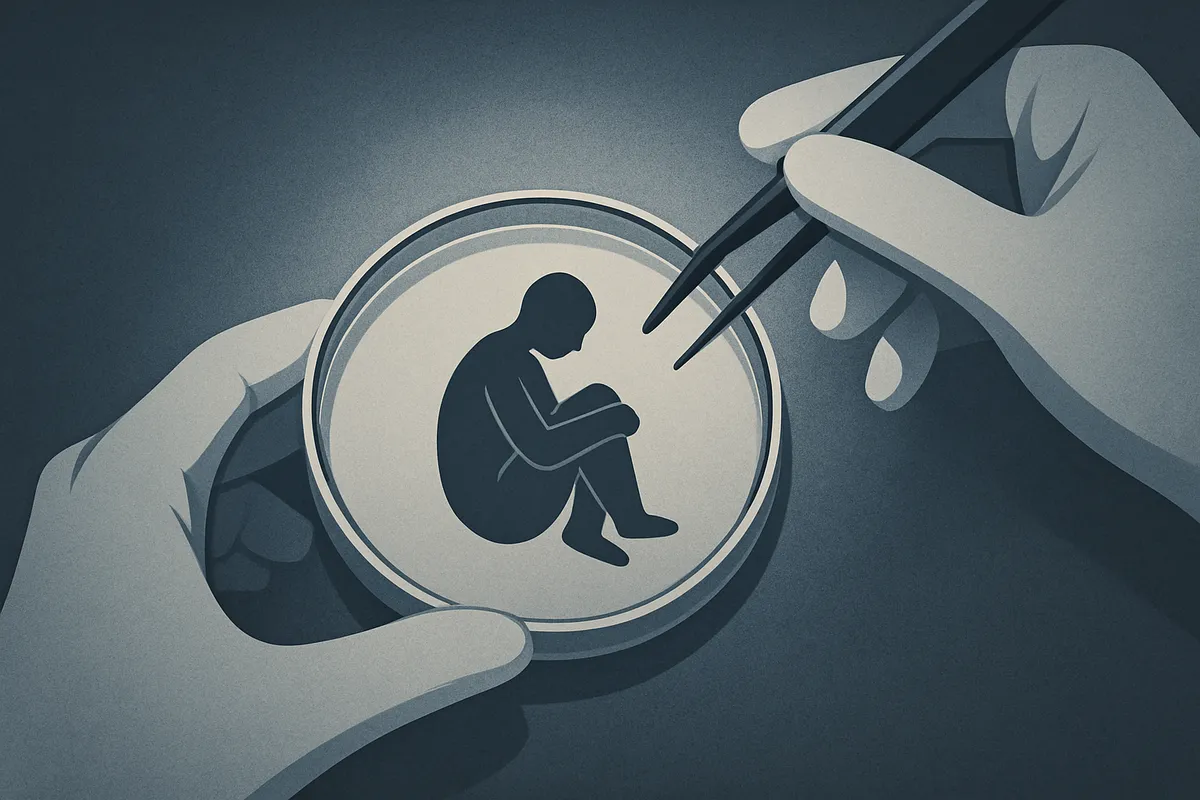Funding Discovery is Not Enough without Offering Dignity
 Dear Simons Foundation,
Dear Simons Foundation,
This week, you announced a £40 million gift to the University of Edinburgh to launch a new autism research center — one that will “investigate the biological basis of autism” through genetics, imaging and large-scale data analysis.
For journalists, it’s a milestone. For funders, it’s a legacy.
But for autistic people, it’s a red flag.
Because everything about this center — its language, its methods, its institutional partners — signals the same old story: autism as something to explain, detect and decode. A biological risk to be mapped. A problem to be predicted.
What’s missing — again — is us.
No autistic co-authors. No mention of participatory research. No vision for how this work improves autistic life — only how it understands it from afar — and within a frame of deficiency.
This isn’t investment in autistic wellbeing. It’s investment in narrative control.
And it’s not the first time you’ve done this.
Your Power Has Never Been Neutral
You fund autism science. But not just any science. You’ve prioritized causation over communication, genetics over quality of life, prediction over participation.
You’ve invested in:
- Gene discovery and “de novo mutation” catalogs.
- Mouse models of “autism-like behaviors.”
- Early detection systems that track eye gaze but ignore consent.
You’ve spent hundreds of millions mapping what makes us different. You’ve spent very little asking what would make our lives better.
And what you call “understanding” has often meant surveillance. What you call “treatment” has often meant correction. What you call “support” has rarely meant autistic voice.
This isn’t just a research portfolio. It’s a worldview. And autistic people are paying the price.
The Autistic Community Is Not Against Science
We are not afraid of data. We are not anti-research. We are not here to sentimentalize suffering or shut down inquiry.
But we are here to ask you to ask better questions. Because the ones you’ve funded — over and over again — start from a single premise:
Autism is a problem to be solved.
And no matter how carefully you phrase your grant agreements or how many times you use the word “understanding,” autistic people hear what you’re really saying:
You would rather explain us than include us.
This Is About More Than Representation
Yes, you need autistic co-authors. Yes, you need participatory design. Yes, you need governance models that include those affected.
But this isn’t just about seats at the table.
It’s about who defines the problem. Because right now, you keep saying that the problem is always located in us.
Not in inaccessible systems. Not in sensory-hostile environments. Not in medical models that reward compliance over wellbeing.
You don’t need to stop studying biology. But you do need to stop pretending that biology is neutral.
Because every choice you make — every RFP, every publication, every data repository — tells a story.
And right now, that story casts autistic life as damage to decode.
What We’re Asking For
We’re not asking you to feel bad.
We’re asking you to do better with the power you have:
- Rebalance your portfolio. Fund research that centers support, autonomy and access — not just risk and remediation.
- Embed autistic leadership. Not just on advisory boards but in agenda-setting. Not just as consultants but as co-creators.
- Acknowledge past harm. You didn’t invent the deficit model. But you funded it, expanded it and globalized it. Don’t hide behind intention. Confront your impact.
- Stop calling this inclusion. Inclusion means shifting who defines success. If your goal is still to make us more typical, you haven’t shifted anything.
Final Thought
You have done what few could. You’ve built a scientific empire. But empires are remembered not just for what they discover — but for what they silence.
Autistic people are not going away. We are not your cautionary tale. We are not your mystery to solve.
We are your peers. Your critics. Your missed collaborators.
You’ve funded discovery. Now, please fund dignity.
Not someday. Now.